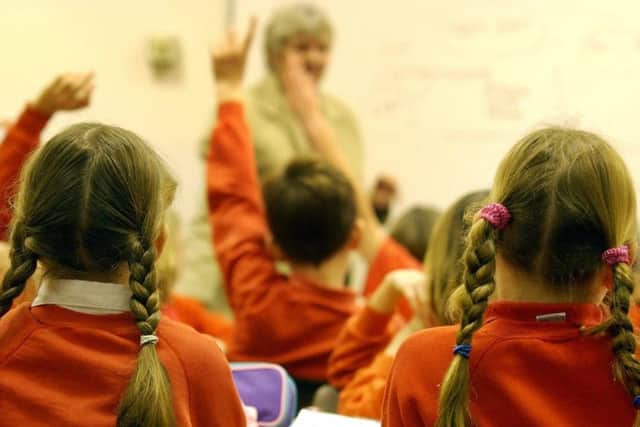All primary one pupils in Western Isles to be taught Gaelic for first time
The move is the first time Gaelic has been given the “default” status of being the main language for teaching in some of Scotland’s schools.
Comhairle nan Eilean Siar – the council for the Western Isles – have adopted a policy of ‘Gaelic first’ to increase the rate of growth for Gaelic in the islands.
Advertisement
Hide AdAdvertisement
Hide AdThe 2011 census showed 52 per cent of the population of the Western Isles, aged three and over, spoke Gaelic.


Supporters welcomed the move, saying it is a reversal of the previous situation where English was the main language, unless parents asked for their children to be taught in Gaelic.
Primary and secondary headteachers and parent councils were informed of the policy in a letter last week from Bernard Chisholm, the council’s director of education.
Under the new policy, pupils will be taught in Gaelic and will start learning English from P4 onwards.
Parents have the option of opting out and having their children taught in English from P1.
Launching the new policy, Mr Chisholm said the “Outer Hebrides is a Gaelic speaking community with a rich Gaelic heritage and culture” and the “majority of our children in nursery and those enrolling in primary, want to speak our language”.
He said being bilingual was beneficial to children’s academic development and would improve job opportunities.
“A significant number of families, who move to the area without Gaelic, enrol their children in GME for the additional benefits of bilingual education,” he said. “I believe that we all want our children to access the undoubted benefits that GME provides, in both English and Gaelic, in terms of reading, thinking skills, problem solving, maths and in many other areas.
Advertisement
Hide AdAdvertisement
Hide Ad“It is truly a free gift and in this increasingly mobile world, it also enables them to acquire other languages much easier.
“Not only do we want to make this offer available to children in our schools, we want to support as many children and adults as possible to learn the language anywhere they want, through our online e-Sgoil provision.”
Mr Chisholm added: “We seek to give every child every advantage we can to ensure when they are in school, and when they leave, they have the widest opportunities possible in the world of work, leisure and learning.” A tweet by Comhairle nan Eilean Siar of Mr Chisholm’s letter was the most liked tweet since the council started the page.
Mr Chisholm was cheered by the audience when he shared the announcement of the new Gaelic policy at a Celtic Connections concert in Glasgow last Friday where pupils from Castlebay Community School on Barra, Sir E Scott School on Tarbert, Isle of Harris and the Nicolson Institute in Stornoway, were performing.
Scottish education secretary John Swinney was a guest at the concert.
The council held a panel discussion on education and bilingualism on Tuesday that was also live streamed.
The change has been broadly welcomed on Twitter
However, one tweet questioned the council’s ‘Gaelic First’ terminology. Sinatra Surveyor@EuKnowIt2 tweeted: “Look, I’m all for this, but “Gaelic First”? This is too close to the far right groups “America First” and “Britain First”. Needs to be more inclusive.”
Shona MacLennan, chief executive of Bòrdna Gàidhlig, the principal public body promoting Gaelic, said: “Comhairle nan Eilean Siar’s policy to have GME as the default choice for pupils entering primary one is a significant and welcome contribution.
Advertisement
Hide AdAdvertisement
Hide Ad“They, like many public bodies, have a Gaelic language programme.
“In its most recent plan there is a commitment to increase the number of pupils entering P1 Gaelic-medium education to 55 per cent by 2020 and the change to GME as the default choice will support this.”
Rob Dunbar, chair of Celtic languages, literature, history and antiquities at the University of Edinburgh, said: “Wherever you have Gaelic-medium, there are parents who have wanted it for their children.
“But it is weaker than in the west of Ireland and in Gwynedd, the strongest Welsh-speaking part of Wales. Exclusive Irish-medium education and exclusive Welsh-medium education have been standard practice for a long time.”
A Scottish Government spokesman said: “We have seen steady growth in those entering GME – an increase of over 8 per cent across Scotland in the last year, which shows our policies are working.
“We are delighted many primary schools across the Western Isles more than 50 per cent of children are enrolled in GME at P1.”